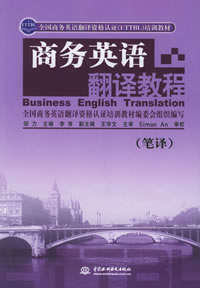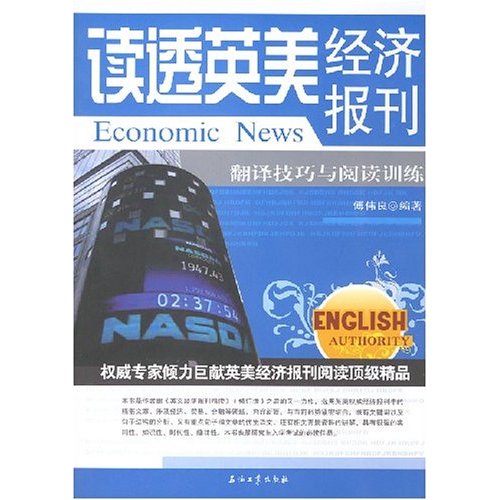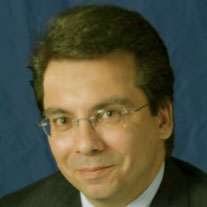英文论文中的常见错误 Common Errors in Student Research Papers
作者:古龙 2009-07-04




语际翻译公司 转载请注明https://www.scientrans.com
∗本栏目部分文章内容来自互联网,部分已经过本站编辑和整理,如有版权事宜请联系Email/MSN jesczhao@hotmail.com
Papers in the older literature tend to be a lot more exciting and often more informative for those not 'in the know,' because the researcher could report how a conclusion was reached, including the reasoning and various sidetracks that led him/her to conclusions. The writer could actually tell the story of the investigation process. Modern papers omit such information because the volume of literature is so great, most of us doing a search don't have time to wade through more material than we need. Publication costs are too high to permit printing of superfluous information.
A research paper summarizes a study. It does not identify who did what. Reference to instructors, fellow students, teams, partners, etc. are not appropriate, nor is it appropriate to refer to "the lab."
Unnecessary background
If you state facts or describe mechanisms, do so in order to make a point or to help interpret results, and do refer to the present study. If you find yourself writing everything you know about the subject, you are wasting your time (and that of your reader). Stick to the appropriate point, and include a reference to your source of background information if you feel that it is important.
Including material that is inappropriate for the readership
It isn't necessary to tell fellow scientists that your study is pertinent to the field of biochemistry. Your readers can figure out to what field(s) your work applies. You need not define terms that are well known to the intended readership. For example, do you really think it is necessary to define systolic blood pressure if your readership consists of physicians or cardiovascular physiologists?
Subjectivity and use of superlatives
Technical writing differs from the writing of fiction, opinion pieces, scholarly English papers, etc. in many ways. One way is in the use of superlatives and subjective statements in order to emphasize a point. We simply do not use such writing styles in science. Objectivity is absolutely essential.
Subjectivity refers to feelings, opinions, etc. For example, in your discussion you might write, "We felt that the fixative was bad, because we had difficulty finding flagella on our Chlamydomonas." Another researcher is unlikely to risk time and resources on the basis of your "feeling." On the other hand, you might write, "The percentage of cells with flagella was inversely proportional to the time they spent in fixative, suggesting that the fixative was causing cells to shed flagella." This is information that another scientist can use.
Superlatives include adjectives such as "huge," "incredible," "wonderful," "exciting," etc. For example, "the mitochondria showed an incredibly large increase in oxygen consumption when we added uncoupling agent." Your definition of incredible might be different from that of someone else - perhaps a five fold increase is incredible to you, but not for the next person. It is much better to use an objective expression, such as "Oxygen consumption was five fold greater in the presence of uncoupler, which is a greater change than we saw with the addition of any other reagent."
Similarly, we don't write that we believe something. We present the evidence, and perhaps suggest strong support for a position, but beliefs don't come into play. In particular, we do not "expect" a particular set of results, or "wire" a hypothesis so that it appears that we correctly predicted the results. That sort of practice is another example of lack of objectivity.
Proof
See my essay on fact, hypothesis, and theory. The requirements for scientific proof are extremely rigorous. It is highly doubtful that any single experiment can be so well controlled that its conclusions can be regarded as proof. In fact, for any result to be accepted it must be confirmed independently. In fact, we can never know if a model as we describe it presents an accurate picture of any natural process. We can never look at the original blueprint to check our conclusions. So... your data may strongly support a position, or they may allow you to reject a hypothesis, but they aren't likely to provide anything close to proof.
Grammar and spelling
Please avoid obvious grammatical errors. Granted, you aren't writing an English paper (heck, an English teacher would tear my own writing
- 评论
- seme:文章内容文章内容文章内容文章内容文章内容文章内容文章内容文章内容文章内容 章内容文章内容文章内容文章内容文章内容
- seme:文章内容文章内容文章内容文章内容文章内容文章内容文章内容文章内容文章内容 章内容文章内容文章内容文章内容文章内容

- 怎样做好英文审校工作
2009-6-10 23:10:42 - Proofreading Your Work It’s every translator’s worst nightmare. You send a translation to...
- 英文论文中的常见错误 Common Errors in …
2009-6-10 14:27:12 - This is not an exhaustive list. With every new lab protocol, you folks come up with the ...
期刊征稿
- 第四届IEEE生物信息与生…
2009-6-30 19:42:01 - 基本信息 主办单位: 四川大学,IEEE生物医学工程协会(EMBS) 承办单位 开始日期 2010/06/18 结束日期 截稿日期 2009/1...
- 第九届全国光电技术学术…
2009-6-30 19:35:58 - 基本信息主办单位: 中国宇航学会光电技术专业委员会承办单位 开始日期 2009/11/01结束日期 截稿日期 2009...
















